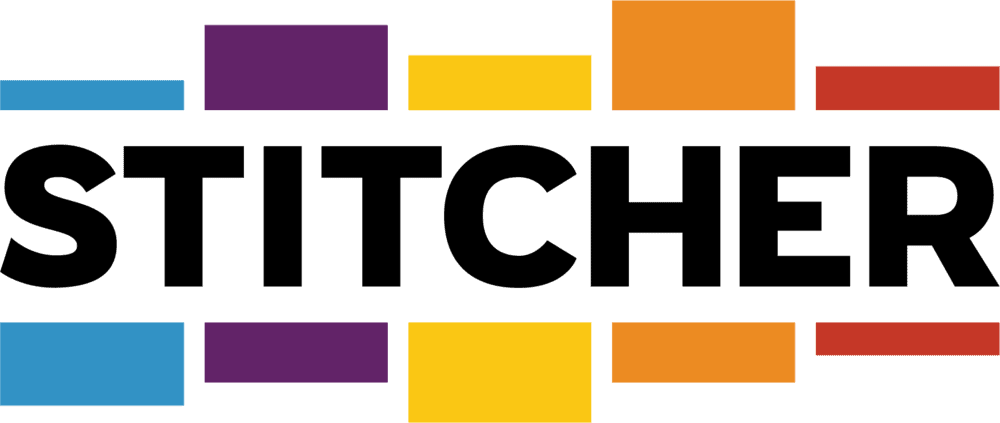Newsletter - July 2020
Hey, Groovers…
So the first half of 2020 is done.
Good riddance.
This has been the most surreal half-a-year that either of us has ever experienced. A worldwide pandemic, economic downturn, unemployment at record rates, George Floyd’s death, protests and riots, self-isolation, polarization over masks, and murder hornets! We are hoping that the 2nd half of the year doesn’t bring locusts and zombies….
All joking aside, this was a hard time for many, many people. The stress of the times and uncertainty around the future were real. People acted in irrational ways (remember the toilet paper run in March). We all were searching for answers.
Behavioral science provided a way for us to examine our responses and helped us in finding ways in which to cope with all of this.
We are so grateful for all the great podcast guests we were able to talk to about this with our special series on the Coronavirus. The behavioral science insights that they brought to light helped us understand why we were acting and feeling the way we were. It provided a grounded perspective to help us get through these trying times.
While the pandemic is still raging on – expanding in the US and the world as we write this – we believe that it is time that we move on. We are not giving up our coronavirus series, just shifting it to a more hands-on, practical, “what do we need to do” approach. Phase II of our coronavirus series will explore what happens next? How do businesses and organizations ensure that they get the recovery right? What insights can behavioral science shed on how we respond to whatever the new normal is going to be in the 2nd half of 2020?
It will be an adventure – we hope that you join us for it.
~ Kurt & Tim
Highlighted Behavioral Grooves Podcast: John Bargh
We have explored behavioral priming in the podcast since the beginning. We did a whole grooving session on it in 2018 (you remember Episode 28 on socks – right?). So it was a great honor and privilege to be able to talk with Dr. John Bargh. John is probably the premier researcher in the field of behavioral priming. His work is foundational in our understanding of automaticity and the unconscious cues that drive our thoughts and actions. Episode 155 with John Bargh was a dream come true for us and it is a fantastic discussion that we think you’ll enjoy.
Kurt’s Reading
I want to come clean – I fibbed a bit last month. I had recommended “Behave” by Robert Sapolsky as my book of the month and I made it seem like I had finished the book. I had not. I still have not. But damn – it is great! This is a tome of knowledge and insight and laughter – if you want to understand why we behave the way we do, please go out and read this! The beginning of the book is a master level class on the brain while the middle of the book highlights our behavior in a number of different realms. The chapter on “Us” vs “Them” provides scientific explanation our current political and cultural polarization like no other that I’ve read. It truly is my favorite book in a long, long time (and I haven’t even finished it)!
Tim’s Reading
With the murder of George Floyd in my town of Minneapolis, I’ve focused my reading on white privilege, anti-racism, and our current states of affairs when it comes to the ways our systems have disproportionately impacted people of color (sometimes intentionally, sometimes not).
I’m currently reading White Fragility, by Robin DiAngelo, a white woman who got fed up and decided to do something about racism. The book laments the tragedies that have plagued our nation since before its official founding and is also a call to action with a guide on what the reader can do.
DiAngelo hits the topic on the nose by stating, “…any white person living in the United States will develop opinions about race simply by swimming in the water of our culture.” Of course this is the case. As the great business strategist, Peter Drucker, said: Culture eats strategy for breakfast. In order to make substantive change, we need to change the culture.
Kurt’s Music
I seem to like male / female duets – from Flora Cash, to Angus and Julia Stone, to early Damien Rice with Lisa Hannigan. Down Like Silver is another in that list. This duet of Caitlin Canty and Peter Bradley Adams has a melodic harmony that is both haunting and mesmerizing. I think I also like songs about wolves – here is there single Wolves.
Tim’s Music
In these traumatic times, I’ve been finding solace in peace-inducing music. A young Brazilian guitarist who plays a unique 10-string guitar (common models are either 6 or 12-string) with an uncommon tuning approach, has caught my attention. Fabiano Do Nascimento has a Tiny Desk Concert that is fantastic, accompanied virtually by drums, piano and chocalho (a miniature guitar-like instrument). It’s breezy and wavy and sits firmly on a Brazilian rhythmic structure and folk melodies.
If you like jazz, you’ll love it. If you like folk music, you’ll love it. If you like new age jazz, you’ll love it. If you need something to meditate to, you’ll love it.
Podcasts
Available at our Behavioral Grooves website, iTunes, Spotify, and just about anywhere you catch your podcasts, we have new podcasts including the COVID-19 Special series and regular episodes, as well. You can check all of these podcasts, and more, at our Behavioral Grooves website at https://behavioralgrooves.com/.
Next Meetup: NO MEETUP IN JULY
Date: No July – come back in August
Time: Gather at 6:00pm Central Time
Online Zoom: https://us02web.zoom.us/j/82255202718
Behavioral Science Principles for July
Cobra effect: Setting an incentive that accidentally produces the opposite result to the one intended. Also known as the Perverse Incentive.
Hedonic treadmill: The way we adapt to changes such as increases in our incomes with increases in expenses. Just as the happiness that comes with the ownership of a new gadget or salary raise will wane over time, even the negative effect of life events such as bereavement or disability on subjective wellbeing tends to level off, to some extent (Frederick & Loewenstein, 1999). When this happens, people return to a relatively stable baseline of happiness. It has been suggested that the repetition of smaller positive experiences (‘hedonic boosts’), such as exercise or religious practices, has a more lasting effect on our wellbeing than major life events (Mochon, Norton, & Ariely, 2008).
Generation effect (Self-generation effect): That self-generated information is remembered best. For instance, people are better able to recall memories of statements that they have generated than similar statements generated by others.
. . . .
Reviews, Ratings & Patreon
Lastly, we’d appreciate you sharing our podcast with a friend or taking a moment to write us a review. If you don’t have the time or inclination to recommend us to friend or write a review, we have also started a Patreon account you can sponsor us directly. Each episode hour that we produce takes over eight hours of our combined time (sometimes more), as well as hard costs for hosting, transcription and web services. We don’t currently have advertisements or big corporate sponsors, so we appreciate any support you can provide. The link to give is https://www.patreon.com/behavioralgrooves – we appreciate it!
Are you concerned about how your employees are dealing with work – either coming back into work during a pandemic or continuing to work from home? Contact Kurt or Tim to help navigate those turbulent waters.
Kurt Nelson, PhD / 612-396-6392 / kurt@lanterngroup.com
Kurt has over 25 years helping organizations understand their employees. His company, The Lantern Group, is a Behavioral Design & Communications Agency focused on Employee Motivation, Company Culture, and Organizational Friction. He has a passion for trying to understand “why we do what we do,” skiing (downhill and water), the Timberwolves, good books, and good beer. Find out more at www.lanterngroup.com
Tim Houlihan / 612-386-5886 / tim@behavioralchemy.com
Tim founded BehaviorAlchemy, LLC, nearly 3 years ago after nearly 20 years at BI WORLDWIDE, a global incentive agency based in Minneapolis, Minnesota. At BIW, Tim was the Vice President of Reward Systems with corporate responsibility for $300,000,000 in revenues for products distributed to over 1 million participants in 49 countries and 32 languages. Tim is also a committed Americana singer-songwriter with 6 self-published records and performs more than 35 gigs each year.
Is your company maximizing its human capital? Does your leadership team know how to leverage behavioral insights to improve performance? Do you need help in developing incentives or understanding how you can maximize motivation? We can help you take that leap through an organizational diagnostic, consulting engagement or a custom podcast for YOUR company? Give us a call!
© 2020 Behavioral Grooves
Disclosure: some of the links in this post are affiliate links and if you go through them to make a purchase, we will earn a commission. This helps us offset some of the costs of the podcast and running the monthly meetups. Note, you can always bypass these links and just buy them directly.
GROOVELETTER ARCHIVES
- August 17, 2020 August 2020
- July 6, 2020 July 2020
- June 6, 2020 June 2020
- April 6, 2020 April 2020
- March 6, 2020 March 2020
- April 1, 2019 April 2019
- December 22, 2018 December 2018
- November 22, 2018 November 2018
- October 22, 2018 October 2018
- August 22, 2018 August 2018
- July 22, 2018 July 2018
- June 22, 2018 June 2018
- May 22, 2018 May 2018











